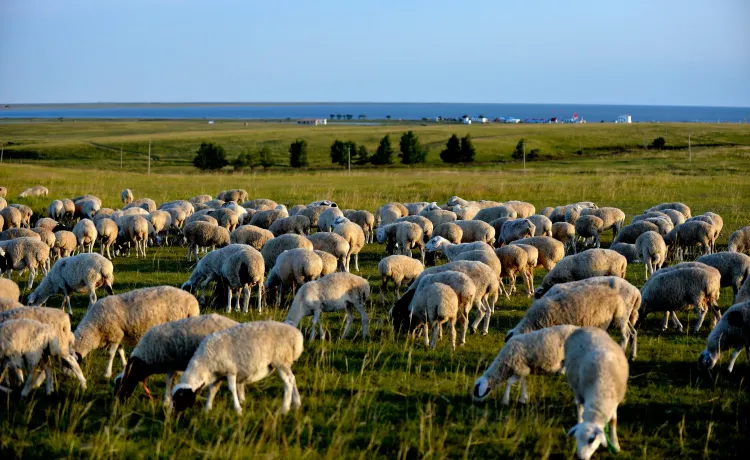Mongolia Initiates Live Sheep Exports to Uzbekistan

Ulan Bator, Dec 25 (NationPress) Mongolia has officially initiated the export of live sheep to Uzbekistan, representing a significant advancement in agricultural trade between the two countries, local sources reported on Wednesday, citing the Ministry of Food, Agriculture and Light Industry.
This initiative arises from an agreement established during Mongolian President Ukhnaa Khurelsukh's state visit to Uzbekistan in June, as stated by the ministry.
During this visit, the leaders of both nations vowed to strengthen cooperation in agricultural trade, particularly in supplying wool, cashmere, leather, meat, and meat products from Mongolia to Uzbekistan and, through Uzbekistan, to other markets in Central Asia.
As part of this agreement, Mongolia has pledged to export 100,000 live livestock to Uzbekistan, according to the ministry, as reported by Xinhua.
The ministry stated, "The agreement is now officially in effect, and the first shipments have commenced. Since December 21, Mongolia has transported 1,440 live sheep to Uzbekistan via two flights."
Enhancing livestock husbandry is viewed as a crucial strategy for diversifying Mongolia's economy, which is heavily reliant on mining.
Mongolia is known as one of the last remaining nomadic nations globally, where livestock herding is vital for diversifying the landlocked country's mining-dependent economy. By the end of 2023, the country had approximately 64.7 million livestock, with goats accounting for 38.1 percent and sheep making up 45.5 percent, according to the National Statistics Office.
The livestock sector serves as a cornerstone of the Mongolian economy, but it faces significant challenges due to frequent outbreaks of livestock diseases.
Earlier this month, a highly contagious disease affecting sheep and goats was reported in the western province of Khovd in Mongolia.
The governor's office of Bulgan soum (an administrative division) in the province stated, "Several cases of Peste des Petits Ruminants (PPR), commonly referred to as sheep and goat plague, have been confirmed in this area."
In October, the southeastern province of Dornogovi was placed under quarantine for an indefinite period due to an outbreak of CCPP, as reported by the General Authority for Veterinary Services.
Contagious Caprine Pleuropneumonia (CCPP), a severe disease affecting goats, is caused by the bacterium Mycoplasma Capricolum Subsp. Capripneumoniae.
It is estimated that around 15,000 goats in Khatanbulag and Khuvsgul soums (administrative subdivisions) of the province are infected. The authority has announced that measures are underway to control the disease, cull the infected goats, and disinfect the affected areas.
Notably, CCPP had not been reported in Mongolia since the 1950s, marking a 70-year absence, according to the statement from the authority.
This highly contagious disease spreads among animals in close proximity through infected respiratory droplets. Symptoms in goats include anorexia, fever, and respiratory complications such as dyspnea, polypnea, coughing, and nasal discharge.








